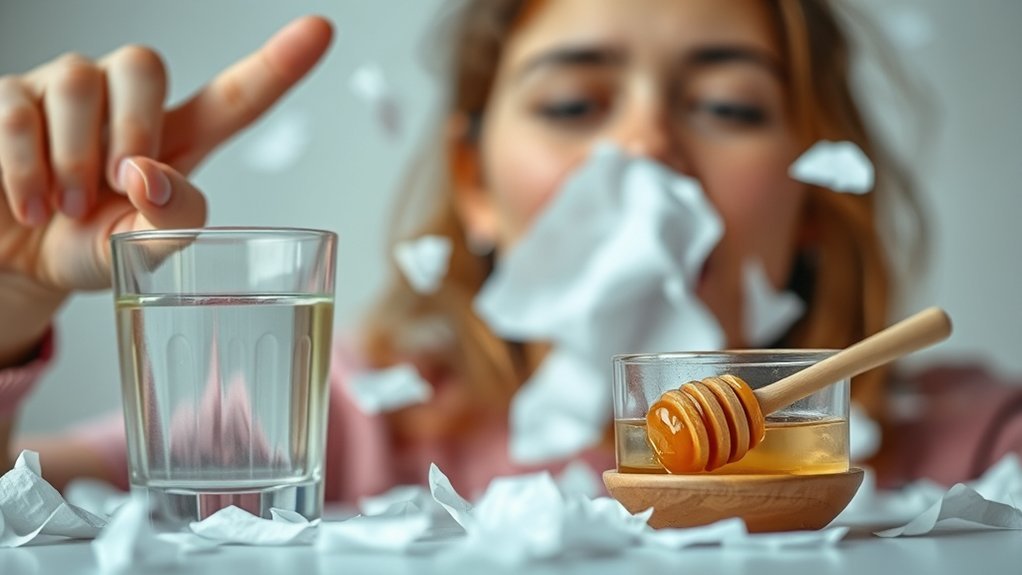Did you know that hiccups affect about 4% of the population at any given time? While they may seem harmless, understanding how to manage them can save you from awkward moments. Similarly, sneezing is a natural reflex, but it comes with its own set of social expectations. Knowing the do’s and don’ts for each can make a significant difference in your daily interactions. Let’s explore the best practices for handling these common occurrences.
Understanding Hiccups: Causes and Triggers
Hiccups, those sudden and involuntary contractions of the diaphragm, can be both annoying and perplexing. They often occur due to various factors, and understanding these causes can help you anticipate when they might strike. Common triggers include eating too quickly, consuming carbonated beverages, or experiencing sudden temperature changes. Stress and excitement can also play a role, as your body reacts to these emotional states. Additionally, certain medical conditions and irritants, like smoking or eating spicy foods, may provoke hiccups. While most hiccups are harmless and temporary, knowing these triggers can help you avoid situations that lead to that irritating spasm. Recognizing the causes is the first step in managing this often bothersome phenomenon.
Effective Remedies for Hiccups
When you’re grappling with those pesky hiccups, knowing effective remedies can make all the difference. Here are some tried-and-true methods to help you find relief:
| Remedy | Description | Effectiveness |
|---|---|---|
| Hold your breath | Inhale deeply and hold for as long as you can. | Highly effective |
| Drink water upside down | Bend over and sip from the far side of the glass. | Moderately effective |
| Swallow a teaspoon of sugar | The graininess may reset your diaphragm. | Variable effectiveness |
| Gargle with water | This can stimulate your throat and help stop hiccups. | Moderately effective |
| Breathe into a paper bag | Increases carbon dioxide, helping to calm spasms. | Often effective |
Try these remedies, and you’ll likely find a method that works for you!
Sneezing: What Happens and Why
Sneezing is your body’s natural response to irritants in the nasal passages. When something tickles your nose—like dust, pollen, or smoke—your body triggers a reflex. This involves a deep inhalation followed by a sudden release of air through your mouth and nose, often at speeds up to 100 miles per hour. Sneezing helps expel these irritants, clearing your airways and protecting your respiratory system. Additionally, sneezing can occur due to other factors, such as bright lights or changes in temperature. While sneezing is generally harmless, frequent sneezing may indicate allergies or infections. Understanding this reflex can help you recognize when it’s just your body’s way of maintaining health versus a sign of something more serious.
Etiquette for Sneezing in Social Situations
How should you handle a sneeze in social situations? First, try to suppress the sneeze if possible, but don’t force it. When you do sneeze, cover your mouth and nose with a tissue or the inside of your elbow. This helps prevent the spread of germs. Apologize briefly afterward to acknowledge the interruption. If you’re in a group, it’s polite to excuse yourself momentarily if you feel a sneeze coming on; stepping aside shows consideration for those around you. Avoid sneezing directly into your hand, as this can transfer germs to surfaces. Finally, keep hand sanitizer handy to clean your hands afterward, ensuring you maintain good hygiene and respect for others’ health.
Tips to Prevent Hiccups and Sneezing
Experiencing a sneeze or hiccup can be disruptive, but there are effective ways to minimize their occurrence. To prevent hiccups, eat slowly and avoid carbonated beverages, as they can irritate your diaphragm. Staying calm and managing stress also helps, since excitement can trigger hiccups. For sneezing, keep allergens at bay by regularly cleaning your living space and using air purifiers. Stay hydrated, as dry air can irritate nasal passages. If you feel a sneeze coming on, try pressing your finger against the bridge of your nose or taking deep breaths to suppress it. Ultimately, being mindful of your habits and surroundings can considerably reduce the likelihood of these interruptions.
Frequently Asked Questions
Can Hiccups Be a Sign of a Serious Medical Condition?
Yes, hiccups can indicate a serious medical condition, especially if they persist for an extended period or occur alongside other concerning symptoms. It’s best to consult a healthcare professional if you’re worried.
Is There a Connection Between Allergies and Frequent Sneezing?
Yes, there’s a strong connection between allergies and frequent sneezing. When allergens irritate your nasal passages, your body reacts by sneezing to expel the irritants, making it a common symptom of allergic reactions.
Are Hiccups Contagious Like Yawning?
No, hiccups aren’t contagious like yawning. They’re involuntary spasms of the diaphragm and don’t spread through social cues or observation. You can experience them independently, regardless of others’ hiccuping behavior around you.
What Foods Can Trigger Sneezing in Some Individuals?
Certain foods, like spicy dishes, dairy, and citrus fruits, can trigger sneezing in some people. If you notice sneezing after eating, it might be worth tracking your diet to identify potential culprits.
Can Certain Medications Cause Increased Hiccups or Sneezing?
Yes, certain medications can cause increased hiccups or sneezing. Common culprits include antihistamines and some antidepressants. If you notice these symptoms after starting a new medication, consult your healthcare provider for guidance.
Conclusion
In conclusion, managing hiccups and sneezing effectively enhances your comfort and social interactions. While it might feel awkward to address these common bodily functions, remember that everyone experiences them. By following the do’s and don’ts, you can minimize disruptions and maintain a sense of control. Don’t let the fear of embarrassment hold you back; instead, embrace these tips to navigate hiccups and sneezing gracefully. You’ll feel more confident and composed in any situation.
